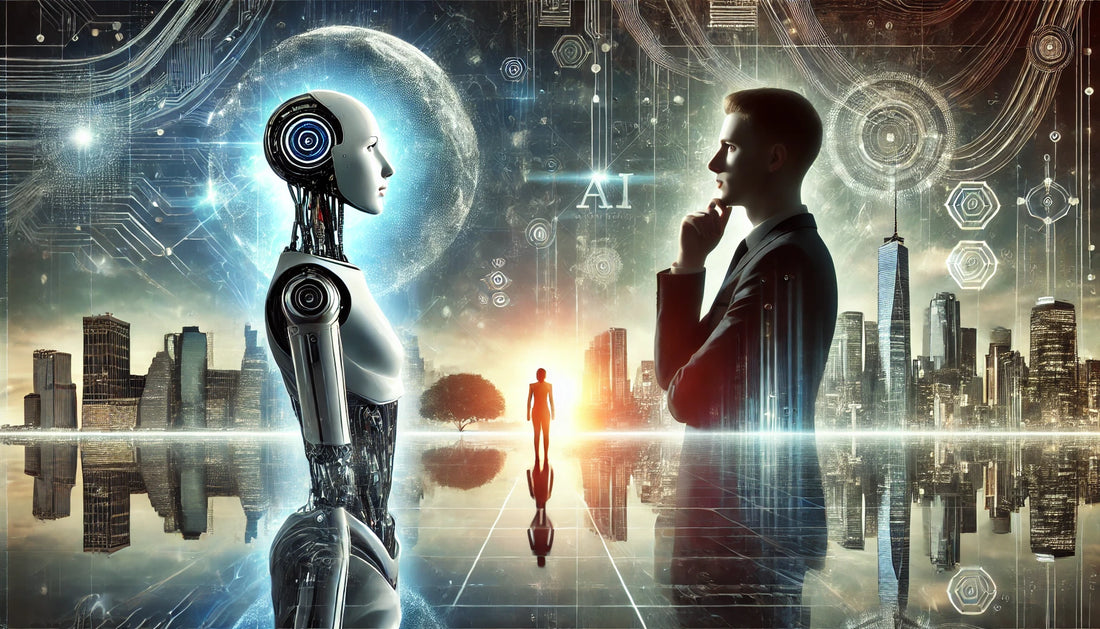
AI vs. Humanity: Are We Engineering Our Own Irrelevance?
Share
As artificial intelligence continues to evolve at an astonishing pace, a pressing question looms large: Are we engineering our own irrelevance? While AI holds the promise of revolutionizing industries, solving complex problems, and enhancing our daily lives, it also raises existential concerns about the future of human purpose, creativity, and intelligence. Will AI become a tool that empowers humanity, or will it render us obsolete? This blog explores both sides of the equation, encouraging readers to reflect on the delicate balance between innovation and human significance.
The Promise of AI: Humanity's Greatest Tool
From medicine to art, AI is enabling breakthroughs once thought impossible. Its ability to process vast amounts of data, identify patterns, and make decisions far surpasses human capabilities in many areas. AI-powered systems are diagnosing diseases, creating new art forms, and driving the future of automation.
For example:
- Healthcare: AI is enhancing diagnostics, drug discovery, and patient care. Tools like AI-driven imaging have improved early cancer detection.
- Creativity: AI-generated art and music challenge the boundaries of creative expression.
- Productivity: Automation increases efficiency, taking over repetitive tasks and allowing humans to focus on higher-level thinking.
In these cases, AI complements human intelligence, serving as a powerful collaborator rather than a competitor.
The Existential Threat: Obsolescence and Irrelevance
Yet, beneath the optimism lies a deeper unease. If AI can outperform humans in creativity, analysis, and problem-solving, what role is left for us? Consider the following concerns:
- Loss of Purpose: Jobs have traditionally been a source of identity. As AI takes over, how do we redefine fulfillment and meaning?
- The Creativity Debate: Can AI truly “create,” or is it merely mimicking human ingenuity? If machines start producing art, literature, and music at scale, what will happen to human creators?
- Intelligence Supremacy: AI’s learning capabilities are already exceeding human speed and accuracy. As it improves, humans may struggle to keep pace intellectually.
This raises a fundamental philosophical question: If machines are capable of doing everything we can—and more—what is left that is uniquely human?
Collaboration, Not Competition: The Human-AI Partnership
The future doesn’t have to be a battle between AI and humanity. Instead of framing AI as a replacement, we must embrace it as a tool for enhancing human potential. For this to happen, we need to:
- Promote Human-Centric AI: Ensure AI development aligns with ethical considerations and prioritizes human welfare.
- Invest in Human Skills: As automation takes over repetitive tasks, human traits like empathy, creativity, and emotional intelligence will become irreplaceable.
- Redefine Purpose: Societies will need to focus on purpose beyond work. Education systems, economies, and communities must adapt to a future where human value is measured by more than productivity.
The Future is a Choice
Are we engineering our own irrelevance? Perhaps—if we allow it. AI holds incredible potential, but it is ultimately a reflection of our values, intentions, and decisions. Whether AI becomes a tool for empowerment or a force that diminishes human relevance depends on how we shape its development. By focusing on collaboration, ethics, and the preservation of human creativity, we can chart a future where AI and humanity thrive side by side.


